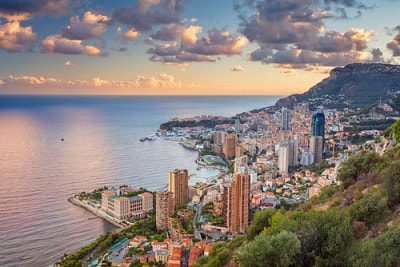It has been estimated that there are several thousand Americans living in Monaco.
Living in Monaco is an incredible experience for a number of reasons, including the climate and beaches, the security and health care, the low taxes, and easy access to the rest of Europe. As an American expatriate living in Monaco though, what exactly do you need to know regarding filing US expat (and Monegasque) taxes?
All US citizens and green card holders who earn a minimum of around $10,000 (or just $400 for self-employed individuals) anywhere in the world are required to file a US federal tax return and pay taxes to the IRS, regardless of where in the world they live or their income is generated.
The good news is if you are paying income tax in Monaco, there are various exclusions and exemptions available to prevent you paying tax on the same income to the IRS too.
US taxes – what you need to know
If you earn over US$10,000 (or just $400 of self-employment income), wherever the income originates in the world you have to file IRS form 1040. While any US taxes due are still due by April 15th, expats get an automatic filing extension until June 15th, which can be extended further on request until October 15th.
If you have overseas assets worth over US$200,000 per person, excluding your home if it is owned in your own name, you also have to file form 8938 to declare them.
If you had a total of at least US$10,000 in one or more foreign bank and/or investment accounts at any time during the tax year, you also have to file FinCEN form 114, otherwise known as a Foreign Bank Account Report or FBAR.
“For more than 150 years, no personal income tax is levied by the Principality of Monaco. Neither Investment Income nor capital gains and directors’ remunerations are taxed in Monaco.” – KPMG
While most expats won’t pay any income tax in Monaco, they can reduce their US tax liability by claiming the Foreign Earned Income Exclusion, which lets you exclude the first around US$100,000 of foreign earned income from US tax if you can prove that you are a Monegasque resident. Remember though that even if you don’t owe any tax to the IRS, if your income is over US$10,000 (or $400 if you’re self-employed) you still have to file a federal return.
Monegasque banks pass on US account holders’ account info to the IRS, so it’s not worth not filing or omitting anything on your return. The penalties for incorrect or incomplete filing for expats are steep to say the least.
If you’re a US citizen, green card holder, or US/Monegasque dual citizen, and you have been living in Monaco but you didn’t know you had to file a US tax return, don’t worry: there’s a program called the IRS Streamlined Procedure that allows you to catch up on your filing without paying any penalties. Don’t delay though, in case the IRS comes to you first.
Monegasque taxes – what you need to know
Monegasque residents are only taxed on income arising in Monaco. This means most expats won’t have to pay any Monegasque income tax.
Monaco has no wealth, property, or inheritance taxes.
Residency in Monaco is achieved by acquiring a home in Monaco (either bought or rented), and making a substantial bank deposit. You then have to be physically present in Monaco for 183 days a year to maintain tax residence status.
Most expats living in Monaco won’t need to file pay Monegasque income tax or file a tax return, unless they are employed in Monaco. The Monegasque tax authority is called the Department of Tax Services.
We strongly recommend that if you have any doubts or questions about your tax situation as a US expat living in Monaco that you contact a US expat tax specialist.

 Connect on LinkedIn
Connect on LinkedIn

